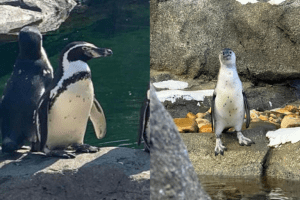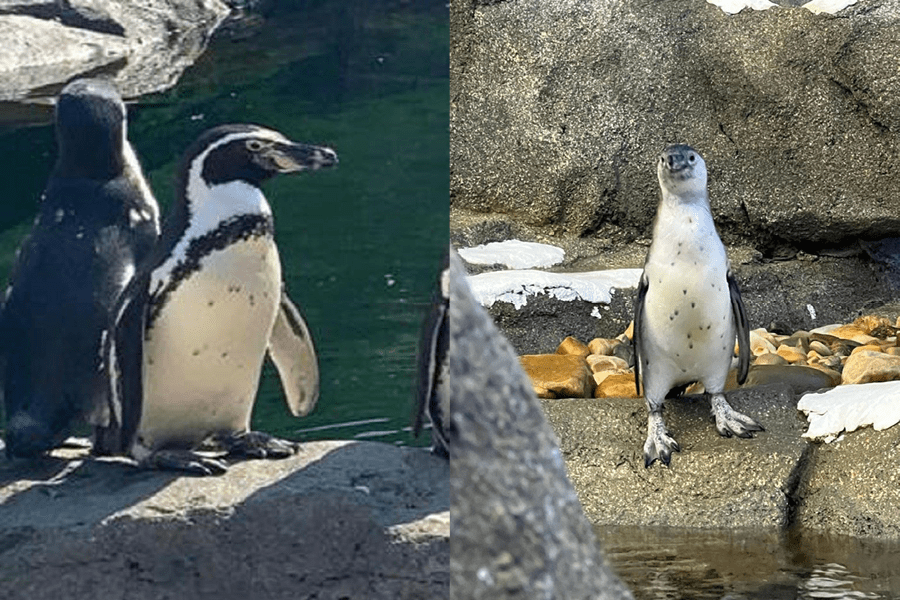An Update on Our Otter Bevy
We’ve been incredibly touched by the kind words and messages of support we’ve received following the news of the loss of our 3-month-old North American river otter pup, ‘Remi’. She clearly made…
Read MorePenguin Plunge: Penguin Plunge will open at 9:30 a.m. on the following days to accommodate our Penguin Breakfast events:
June 28
July 6, 13, 19, and 27
August 2, 3, 10, 16, 24, and 31
Thank you for your understanding.
Wild Canada
Our grizzly bears ‘Skoki’ and ‘Khutzeymateen’ will be off-view from 9:00 a.m. until 11:00 a.m. on Wednesday, July 16th, while contractors complete work in the habitat. Thank you for your understanding.
Exploration Asia
The Exploration Asia Redevelopment project is officially underway! While there are some viewing impacts in the area, you can still visit many of your favourite species.
Due to significant construction activities in and around Exploration Asia, the zoo’s West Gate will remain closed for the 2025 season and is expected to remain closed until at least 2028/2029. This necessary step supports the safe movement of visitors while we undertake exciting improvements to animal habitats and visitor experiences.
Bite-Sized
The health and well-being of the animals in our care is one of our top priorities. However, even with access to the best nutrition, exceptional habitats and exemplary medical care, there are occasions when Mother Nature has other plans.
Towards the end of August, two Humboldt penguins in our care sadly died from avian malaria. ‘Bianca’ (11 years old) and her son ‘Rio’ (1 year old) both succumbed to the illness. Avian malaria is a mosquito-borne disease of birds transmitted through bites of infected mosquitos. Although these deaths were unexpected as all of our Humboldt penguins have been on preventive medication every summer for the past decade, the disease is widely known to affect many species of birds and is one of the most significant causes of mortality in penguins, under human care and in the wild, with mortality rates ranging from 50-80%.
Following the sudden loss of Bianca and Rio, the Animal Care, Health & Welfare began testing the entire Humboldt penguin colony for signs of infection. The unfortunate reality is that avian malaria does not always show up in blood work in advance and if found, the treatment is not always successful in penguins. None of our other birds were positive on their bloodwork.
Bianca hatched at SeaWorld San Diego in May 2012. She joined the Wilder Institute/Calgary Zoo family in September 2013, so she lived most of her life with us in Penguin Plunge. Rio hatched here at the Wilder Institute/Calgary Zoo in June 2022 and was the offspring of the late Bianca and her mate ‘Chango’ (7 years old).
We are deeply saddened by these unexpected losses. Please keep our Animal Care, Health & Welfare team in your thoughts during this difficult time.

Humboldt penguins, ‘Bianca’ (left) and ‘Rio’ (right)
